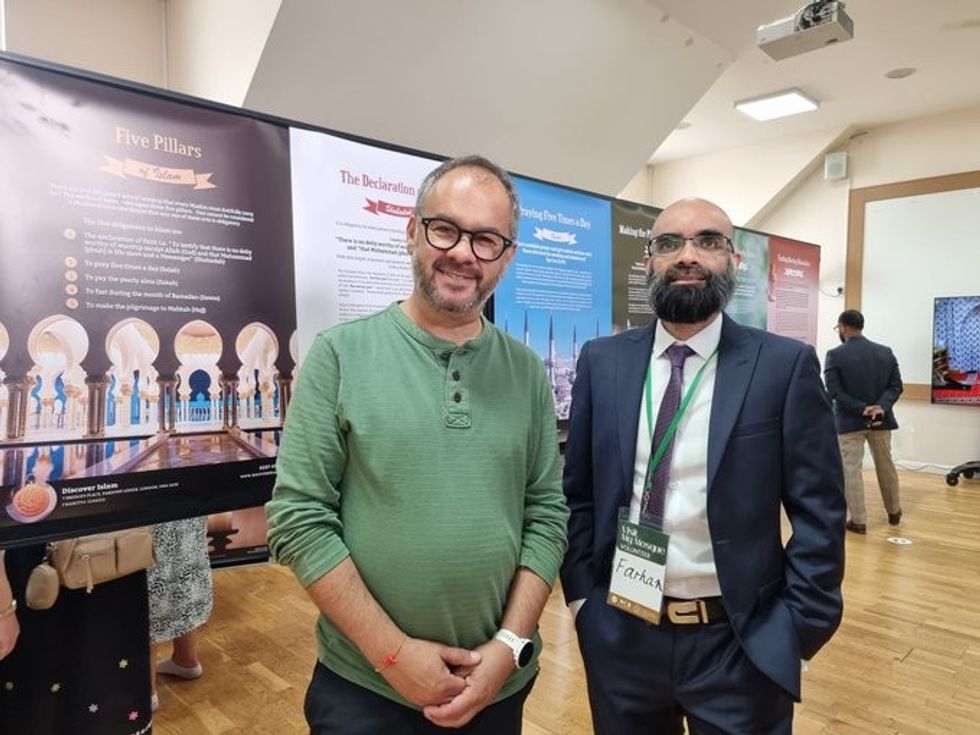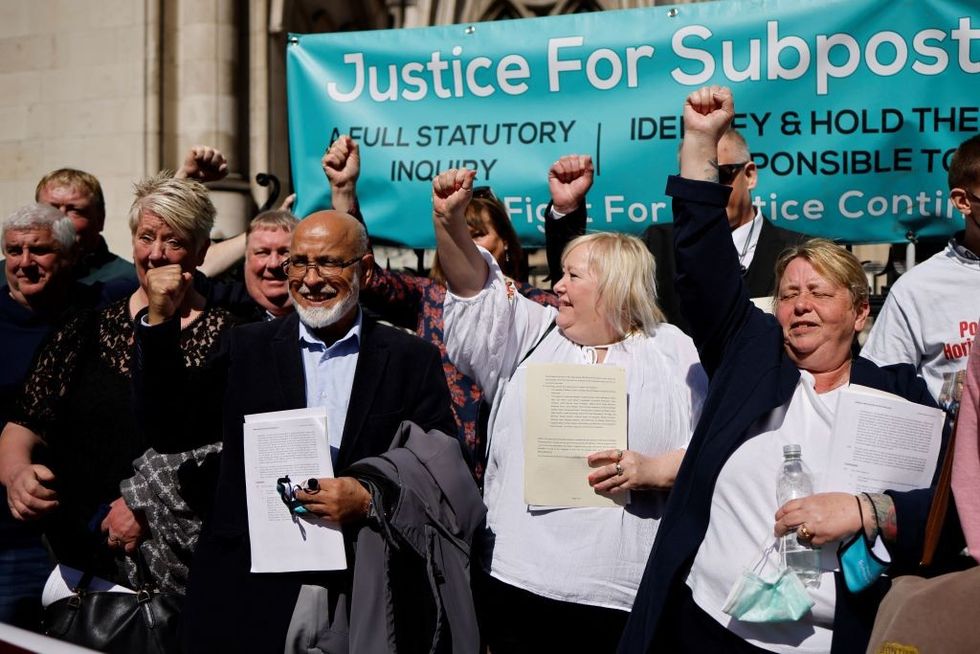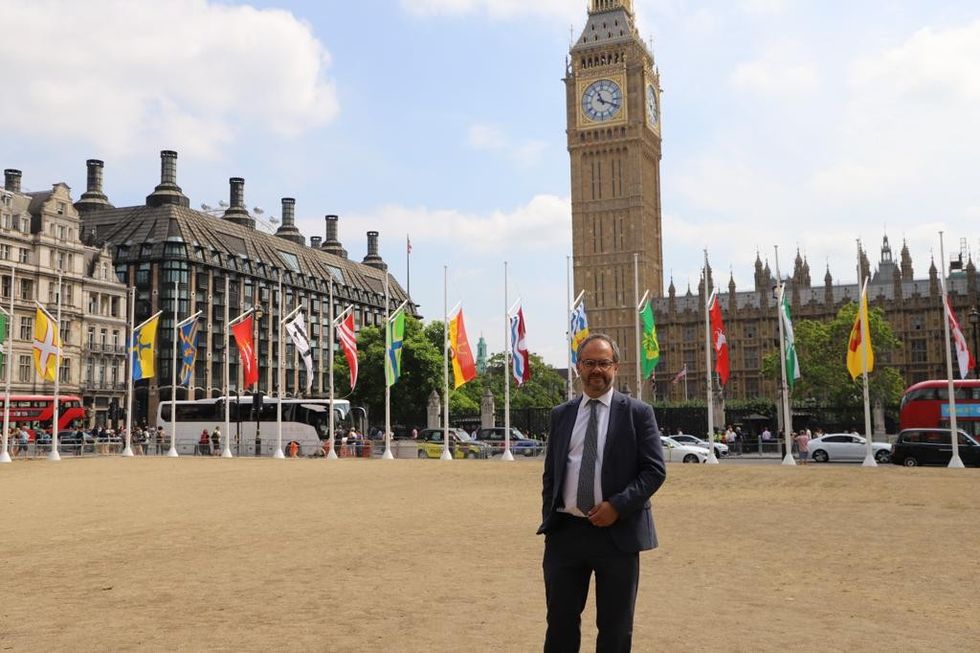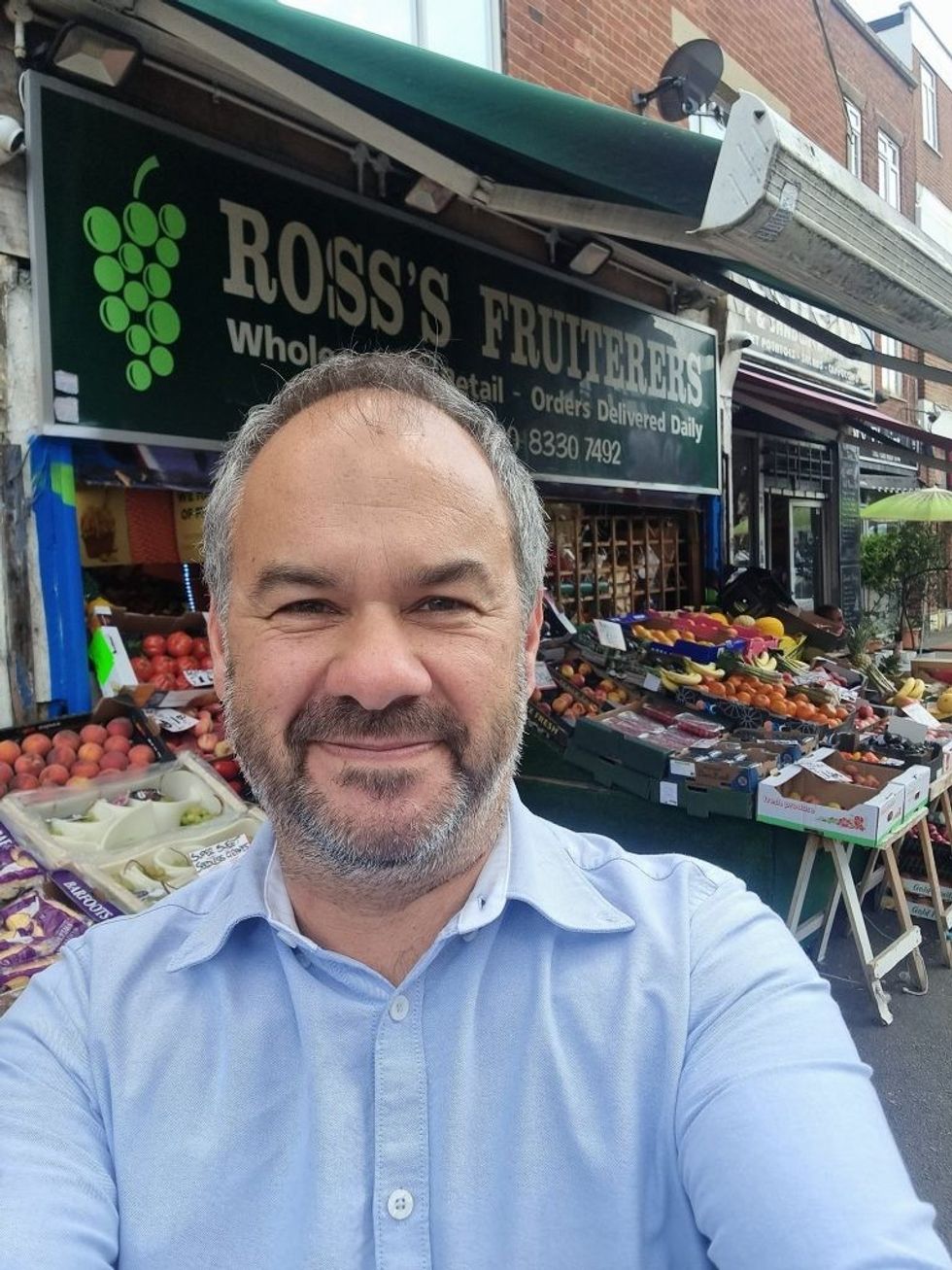Here we are in the middle of another crisis, and it’s hard to even remember which is newest considering the upheavals of the past few years – is it Covid, Putin’s war, runaway inflation and currency collapse – or perhaps imminent asteroids?
But when the Minister of State for Local Government, Faith and Communities – also Minister for London – Paul Scully, rang the doorbell at Asian Trader Towers a few weeks ago (just before the vote that made Liz Truss Prime Minister), and joined us for a chat over a cup of tea, it seemed as if life was for a moment briefly, welcomely, back to normal.
Scully, needless to say, is a refreshingly normal bloke – running small businesses for over twenty years in the southern suburbs of the capital, until he was made the MP for his Sutton and Cheam constituency in May 2015. You can immediately tell that he gets along with people and knows his way around Parliament. In fact, Scully was a confidant of both Liz Truss and Rishi Sunak in the run-off for the leadership – unsurprising, perhaps, as he was made Deputy Chairman of the Conservative Party three years ago.
And in contrast to some other ministers, he arrives alone, without assistants and PR people in tow – having crossed the river and “had a nice stroll”. There’s no “Don’t ask about this” or “Such and such is off limits” from Scully. I simply explain that Asian Trader does not practice “gotcha” journalism, and off we go.
But which crisis should we talk about first? How about the pandemic and the economic troubles that retailers are experiencing as a result?
Ghost town
“I was promoted into the job a month before lockdown,” Scully says, “so it's pretty well all I’ve known within that role. It was a ghost town in the middle of London. What you saw was something like 600 high streets dotted around Greater London. Some of them weren't suffering as badly as the central activity zone in the West End, the City, Canary Wharf, those kinds of area.”
He sees things getting back to normal now despite the ongoing issues over travel and supply chains, even though inflation is forcing people to cut back on spending, and although London’s recovery might be behind other areas of the UK.
“We knew that London was going to probably bounce back later than everywhere else – unusually, because when you have a recession or downturn London is usually the first place to bounce back.”
The pandemic was different, notably in the way that international commerce and travel was interrupted – a big change that might in certain ways prove permanent.
“First of all, it’s getting workers back into the office as best we can,” he explains. “Students, domestic travellers – international travellers are the one that's still lagging, although there's lots more languages being spoken on the streets. I walked down here from Westminster, and for the first time there were plenty of people visiting Parliament Square, but we need them to be spending as well. That's the key to getting that middle-of-London kick started again.”
I say that the pandemic has knocked the stuffing out of London's finances, and that as usual ordinary people are suffering, with bus routes lined up for the chop, hospitals straining under the back log, and so on.
"Transport for London is suffering,” admits Scully, “and the government has just agreed the latest deal to try to keep London moving. They’ve put about £6 billion overall into TfL. That's roughly the same as has been lost. So, we want to keep that long-term view going. It's up to the mayor now, to make sure he can have a future sustainable financial position for TfL to rebuild again.”
Will that end the seemingly endless industrial action that’s making everybody’s lives a misery – and deterring many from getting back to the commute?
“What we are putting in place is the idea of having minimum service levels during strike action, to try and push down that wildcat militant union action. People should be able to be members of a union and should be able to raise points of dispute and concern as employees, but there comes a point where you get union activists trying to hold the population to ransom to make political points.”

They say they need a pay rise because of inflation – I say, join the club. And now with the energy crisis it seems as if anybody could go bust quickly, after two years of going bust slowly.
“I was Minister for Small Business for two and a half years,” says Scully, “and I ran small businesses, so I know what it's like to go without – so that I could pay my staff and my bills – and I think that gives you a different perspective on politics, and especially in that kind of role.
"We put £408 billion of support into the economy to protect jobs, businesses and livelihoods. Insolvencies were at a 40-year low at points through the pandemic, which meant that businesses that would otherwise have failed actually got protected.”
But not permanently.
“There was always going to be an element of some insolvencies,” replies Scully, “but for good businesses that that are still very viable and then get hit by energy bills, it's a real tough one,” he admits.
Fuel for thought
Scully outlined the aid to help with energy bills that Rishi Sunak was planning, but which has been superseded by the price caps announced soon after Truss entered office – to the relief of many but to the detriment of the gilts market and the exchange rate (at the time of writing).
I point out that better than having an emergency relief plan would be to have an actual energy policy, which British governments of all persuasions have been avoiding for decades now, so that the UK – which could be almost self-sufficient in oil, gas, coal and a decent nuclear programme – is now dependent upon windmills and unicorns; perhaps a little harsh as an upsum, but not too far from reality.
“Yeah, you're absolutely right,” he disarmingly agrees. “It's really important that we can look at the short term, but energy is going to remain a problem if we don't solve it. And the reason that prices are high is quite simple in macro terms: there's a lot of people wanting energy, demand is high. There's not enough barrels of oil, there's not enough gas being pumped out. And renewables are not at a point where there's enough of them to take the place of oil and gas and nuclear.
“So we've got to increase supply, and we can do more domestically. One of the last things I did as business minister, was give planning permission for Sizewell C, the new nuclear power station, and that's now back to government to make the financial decision. It’s got planning permission now and we need to start building.”

Is it true that policy has been hamstrung by nimby-ism and climate ideologues who discount the economic effects of their green utopianism?
“You do get pushback from a lot of zealots, shall we say, who really want Net Zero to be now, although it’s impossible just to switch off, which is unrealistic. It's been quite galling when you look back at some of the videos that have emerged recently of Nick Clegg at the beginning of a coalition in 2010 when he was saying, ‘No, we don't want to have nuclear as part of the mix because it doesn't come on stream for ages, until 2021 or 2022’!”
He laughs remorsefully: “We'd have been so thankful to have that coming on stream now, exactly as we need it. Someone said, there are two good times to build a nuclear power station. The best was 20 years ago and the second-best time is now.”
Scully states that not being realistic about the country’s energy needs "cuts our nose off to spite our face” and that the big thing Liz Truss has been talking about is to get an energy policy and boost domestic production.
This is good and an encouraging mid- to long-term plan. But to rehearse the anxieties of our readers – independent retailers across the nation, who are small business owners without depthless pools of capital on which to draw for sustenance – it seems right now to be a hopeless situation, with sky-rocketing bills and ever-narrower margins.
Real, potentially fatal problems are staring them in the face and they're already starting to talk about half-day opening or limited hours, shedding staff. Our readers don't have the option of a ceiling on payments like domestic users have. Secondly, they can't turn the chillers off as stock will go bad. They've got to keep them on all the time.
"At the moment, everyone's just looking at surviving," says Scully. “They're just trying to minimise cash burn and profit is a long way away for a lot of people. So, while they're working hard for their business, they don't have that scope to lift their head up and work on their business. And that was that's always a difficult dynamic for small business owners, but it's particularly pertinent now.”
In solid Conservative tradition Scully cleaves to supply-side solutions:
“What we've got to do first of all is cut the cost of doing business, we've got to make sure that we reward people that are taking those risks. Otherwise, why don't they just pack up and go and work for a big grocer, rather than forever have that heartache of being a single trader?”
Open for business
Encouraging business activity, he says, is the essence of what he knows that Truss has in mind as her economic plan – to cut taxes and get the government middleman out of the way.
“So, let's make it worth their while. Let's reignite that opportunity, that entrepreneurship, but also make it easier for them to trade. Make it so it's not all just about cost. Is there something other we can do with local authorities, for example to make parking easier?”
Yes, and do something about business rates?
“I think there's one more thing that we can do that we should be doing,” he says, "and although I can't say it's government policy now, what I can say is that having spoken to Liz Truss specifically about it, she's very keen to look again at business rates.
“From my point of view and as a personal point of view, I would scrap them. I think they were a 20th century tax that have had their day, because you don't measure the success of a business on their square footage anymore. “
So what’s stopping you?
"Frankly, I don't know what you’d put in its place. And that's the key thing, because the resistance from Treasury is that business rates raise £26 billion pounds, and it's really easy for them to collect.”
“I think that over probably the last 20 years is that there's been a sort of Treasury orthodoxy that's tried to take the reward out of taking risk,” says Scully, encouragingly. That is hopefully set to change.
“Having come from small business, I'm a poacher turned gamekeeper. I believe in Ronnie Reagan’s mantra about the nine most-feared words in the English language: ‘I'm from the government and I'm here to help’.”

In fine British fashion Scully (whose father immigrated here from what was then Burma) deploys a cricketing metaphor: government should roll the pitch for business, and then the businesspeople should crack on and develop their ideas.
“They know how to gain custom; they know how to give people good experiences, give people good service, whatever it is. Government shouldn't be involved in that kind of thing.
Be an umpire standing to the side, wrapped in the jumpers …
“Exactly, or a groundsman. Roll the pitch and make sure it’ll take a spin at a good fast pace.”
Going postal
This is getting to be fun, but there is a serious issue we need to address, and that is the Post Office scandal. Obviously, Scully was not there when the scandal took place, or when it began to be exposed, but he was (as Parliamentary Under-Secretary of State for Small Business, Consumers and Labour Markets) when it came to launching enquiries into who was responsible and deciding on a course of punishment and compensation.
I explain that at Asian Trader we are particularly interested because there was a disproportionate number of Asians victimised. Was there an element of covert racism involved – maybe English wasn't their first language; maybe this made some afraid to stand up for themselves as strongly as they should have? Did that make them an easier target for prosecution and encourage the deflection of blame from those responsible for the real fraud?
“First of all,” Scully says, “it was the biggest scandal in British court history. The size and scale of it is absolutely horrendous. It's not about being a government minister or an MP, it's impossible to be a human being and look at it – the scale of it and the horror stories that we've got, whether it’s Seema Misra, Christopher Head, or anyone else who went through such horrendous circumstances – and not be moved.
“But I'm not sure whether you can boil it down to the fact that they're Asian,” he replies, because the Asians are feisty and entrepreneurial, having come halfway around the world to start a new life – “like my father when he came from Burma at the age of 18” – and can stand up for themselves.

“Regarding the Post Office, I set up the statutory inquiry, which is going through at the moment. [Former High Court judge] Sir Wynn Williams is doing it, and as far as I know, is doing a good job.
“I don't really want to go too far in what I say, so that he can have the space to do what he needs to do. It wouldn't be independent if I'm commentating too much. However, what I would say about the justice is that clearly these wronged people, and existing postmasters, and the Post Office itself, can't move on until there are real answers – who did what, who knew what, who's going to take the rap for it? ”
He says we have to make sure nothing like it ever happens again: “We've put people in prison who have done nothing wrong, like Tracy Felstead, who saw someone hanged in prison when she was only 19, and she got PTSD. And she's having to now tell that story again, to her children. And relive all that experience.
“First of all,” he continues with some passion, “compensation isn't going to fully compensate her for that. I've always said, as well, that there's only so many ‘fine words’ I and my successor, Jane Hunt can say. It’s action to compensate them properly that counts.”
Scully points out that all of the original 555 persecuted postmasters and postmistresses at one time believed individually that they were the only people the Post Office was going after – not realising there were another 554 people around the country going suffering the same obscene ordeal. The Post Office, of course, had declined to inform them – removing a major possible line of defence against the accusations: if so many were suddenly involved, it was possibly (even obviously) a fault with the new Horizon software.
“And these people not only lost their businesses but often thought they were going mad, not understanding how they were getting the accounts so wrong,” says Scully, visibly animated. “I'm really delighted that one of the last things I did was at least to get the money and undertaking from the Treasury, and the process started, to give them an interim payment.”
Scully says he regrets he is no longer part of that process for delivering justice to the wronged, “I'm sorry I wasn't there to finish the job, but I’ll be checking in to make sure it does get finished.”
Let Post Office and Fujitsu take that as a warning.
Onward!
I ask Scully what his advice is for the new PM given their scope for action, (Truss has since resigned, but this could be well applicable for her successor, with the debt we've got, the economic conditions, the current international pressures...)
“There would be two overall general things. First of all, communicate well. Make sure people know exactly what we are doing. The second thing is to deliver – just absolutely to deliver. Trust in politicians has gone down hugely because we've had a really torrid year of story after story that's all been based around Westminster. The Conservatives made a lot of promises in 2019, and we've had two and a half years that haven't been wasted. But we've had to be really committed on COVID and now the war. That leaves us two and a half years of really compacted time now to be able to deliver our manifesto and those promises made back in 2019.
“That means we've got to be a government in a hurry. And in order to do that, we've got to learn the lessons of COVID – that you can make quick decisions in government. It’s no good if voters just say, ‘You've done nothing for me for the last two years.’ So we've got to act, act, act.”
And with that, Scully sets off back towards Waterloo Bridge.







